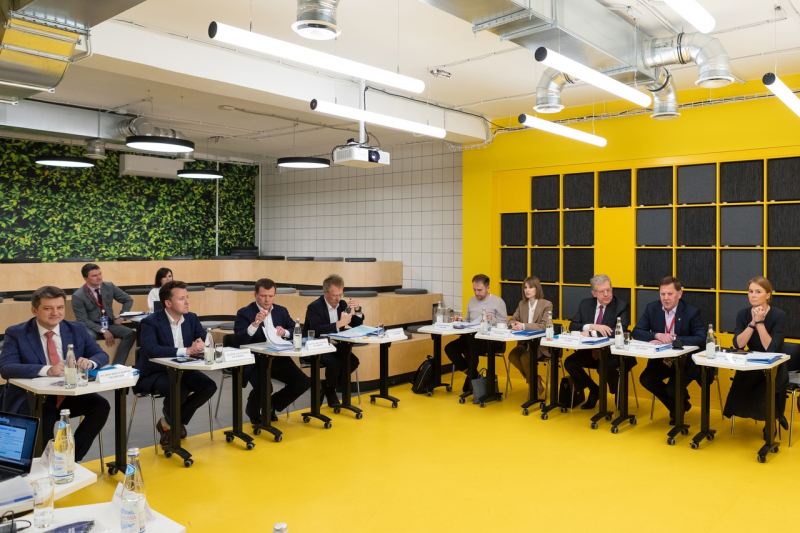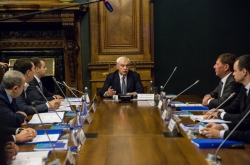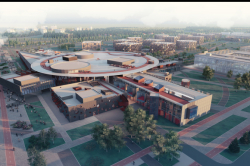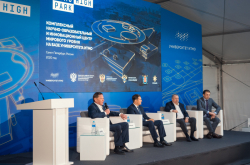The meeting was opened by Valery Falkov, the Minister of Science and Higher Education of Russia, who personally approved the new line-up of ITMO’s Supervisory Council.
“I know how tenderly ITMO treats collegial administrative bodies and transforms their decisions into concrete actions. This is a new milestone for the system of Russian higher education and ITMO University, as well. Plus, the timing worked out perfectly. The launch of the new Priority 2030 program has fortunately coincided with the renewal of ITMO’s Supervisory Council. I’d like to wish productive and fruitful work to the new team,” says Valery Falkov.
As noted by Daria Kozlova, ITMO’s First Vice Rector, the previous members have made great progress in developing the university.
“The Supervisory Council is a major governing body of the university and is responsible for managing financial and economic matters, establishing ITMO-adjacent legal entities, and forming development strategies,” says Daria Kozlova. “The previous council has done a good job. Now, we’re moving into the next phase and expect the new members to help us achieve our ambitious goals.”
Members of Supervisory Council
The meeting began with the swearing-in of the new Supervisory Council chairman – Sergey Kulikov, head of the RUSNANO corporation. During the session, Mr. Kulikov emphasized that RUSNANO recognizes the high scientific potential of the university. He also pointed out the importance of mathematical modeling and algorithms and data sets for RUSNANO’s projects.
“ITMO is a place where fundamental research transforms into deep technology and innovative products, and RUSNANO intends to make active use of investments to promote the university’s most promising solutions,” says Sergey Kulikov.
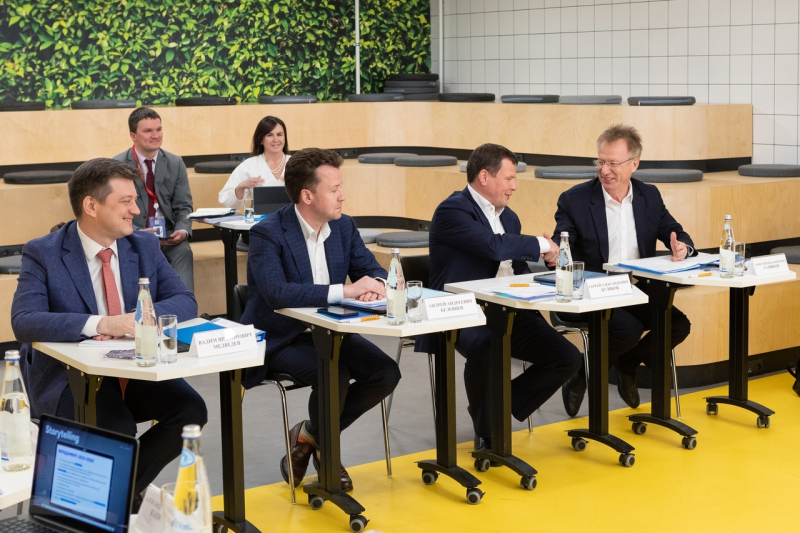
The meeting of the new members of ITMO’s Supervisory Council
Several previous members of the board will also continue their work. These are the representatives of the Ministry of Education and Science Alexey Medvedev, the Deputy Minister, and Vadim Medvedev, the head of the Department for Innovation and Advanced Research; Elena Fedorova, the head of the Interregional Territorial Administration of the Federal Agency for State Property Management in St. Petersburg and the Leningrad Region; and Andrey Belevtsev, the Director for Digital Transformation at Gazprom Neft.
“These meetings always spark a stimulating and constructive dialog,” notes Andrey Belevtsev. “Each time, our colleagues deliver presentations that result in a good deal of discussion and involvement. And I appreciate that this is not a formal body that approves certain corporate actions but a community that lets everyone voice their thoughts and encourages feedback. I really like ITMO, and I’m ready to support it in every possible way.”
Strategy 2030
The central topic of the meeting was the university’s development strategy for the next ten years, presented by Daria Kozlova.
“We want to focus on high-quality research at the level of the Science and Nature journals, important KPIs and major breakthroughs, as well as see our graduates and staff receive Nobel Prize-level awards,” she explains. “The next step is the commercialization of our technologies. We call it TRL 7-8 University. This title is hard to achieve. At the moment, there are no universities in Russia that offer finished products to the end user. We believe that our university can become a genuine corporation in the sense that consumers will use our very own products: headphones, apps, and so on.”
The program also aims to actively promote ITMO’s new fields of study such as Art & Science by presenting the works of ITMO-affiliated science artists at international cultural events such as the Venice Biennale.
According to the plan, education should follow an individual approach, with its format and content being adapted to each student’s case. The university, in turn, must provide knowledge in different forms: oral and written, online and offline, or with the help of VR/AR.
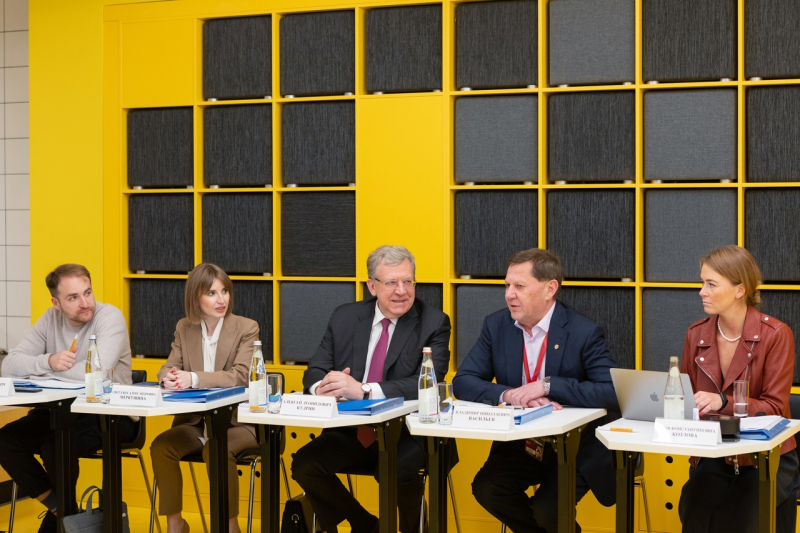
The meeting of the new members of ITMO’s Supervisory Council
And last but not least, ITMO should move towards a more eco-friendly policy, conscious consumption, and the holistic development of its students by not only providing the knowledge they need, but also supporting their physical and mental health.
Aleksei Kudrin, the Chairman of the Russian Accounts Chamber, shared his opinion on ITMO’s prospects:
“I’ve been working on new forms of education for a long time and support the most advanced research fields. I think that ITMO is one of the most promising universities in St. Petersburg. Everyone can learn from its experience. This is probably one of the most ambitious development programs out of all adopted by universities in St. Petersburg, and perhaps even those in Moscow.”
“The program is impressive, and it’s great that we have such a tech development hub in our country,” adds Andrey Styskin. “And I think that my expertise can help in the implementation of this strategy, even though it’s a completely new field to me. Yandex and I have something to offer to put these plans into action.”
The council will reconvene for two more sessions in 2021 to discuss the relevant aspects of the university’s development, including the start of construction of ITMO Highpark.
